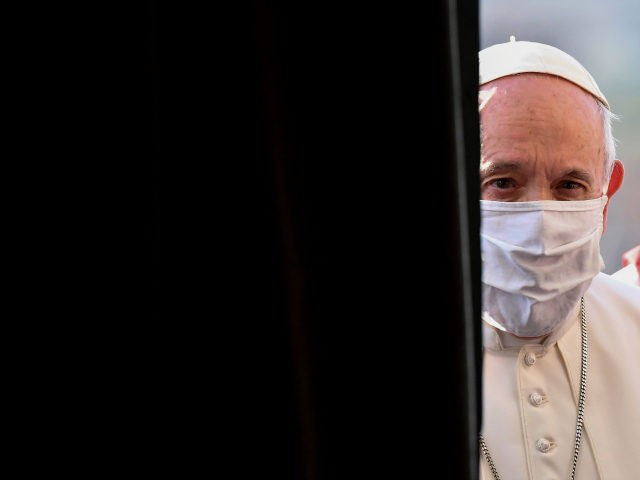ROME — Pope Francis has urged seminarians in Rome to offer the world a solution to the “great evil” that afflicts it, an evil laid bare by the coronavirus.
“Protect the world from the great evil that afflicts it,” the pontiff told students at the Jesuit-run Pio-Latino seminary on Friday. “The pandemic has put us before the great evil that afflicts our society, laid it bare, we can really feel it.”
Without ever identifying this “great evil” by name, the pope seemed to hint that it represents divisions and a lack of universal brotherhood.
“Globalization overcame borders, but not minds and hearts,” he continued. “The virus spreads relentlessly, but we are not able to give a unified response.”
“The world continues to close the door, rejecting dialogue and rejecting collaboration, refuses to open up sincerely to the common commitment for a good that reaches everyone without distinction,” he said. “This is the spirit of the world, so it moves, so it works.
The pope has insisted that an eventual coronavirus vaccine should be universal and prioritize the neediest rather than the wealthiest, denouncing a “vaccine nationalism” that would protect the intellectual property rights of the drug’s inventors.
Humanity must “plan the treatment of viruses by prioritising those who are most in need,” the pope said last August. “It would be sad if, for the vaccine for Covid-19, priority were to be given to the richest!”
“It would be sad if this vaccine were to become the property of this nation or another, rather than universal and for all,” Francis added.
The coronavirus pandemic has “exposed the plight of the poor and the great inequality that reigns in the world,” he said on the same occasion, adding that the virus has “exacerbated” the great inequalities and discrimination that already existed.
In Friday’s address, Francis told the seminarians that the “cure of that evil must come from below, from the hearts and souls that will one day be entrusted to you and must come with concrete proposals and open spaces, to heal this evil and give God a united people.”
“I repeat this figure, globalization yes, but not as a sphere, the sphere is uniformity,” he insisted. “Yes to globalization, but as a polyhedron, where every nation, every person retains his own particularity.”

COMMENTS
Please let us know if you're having issues with commenting.